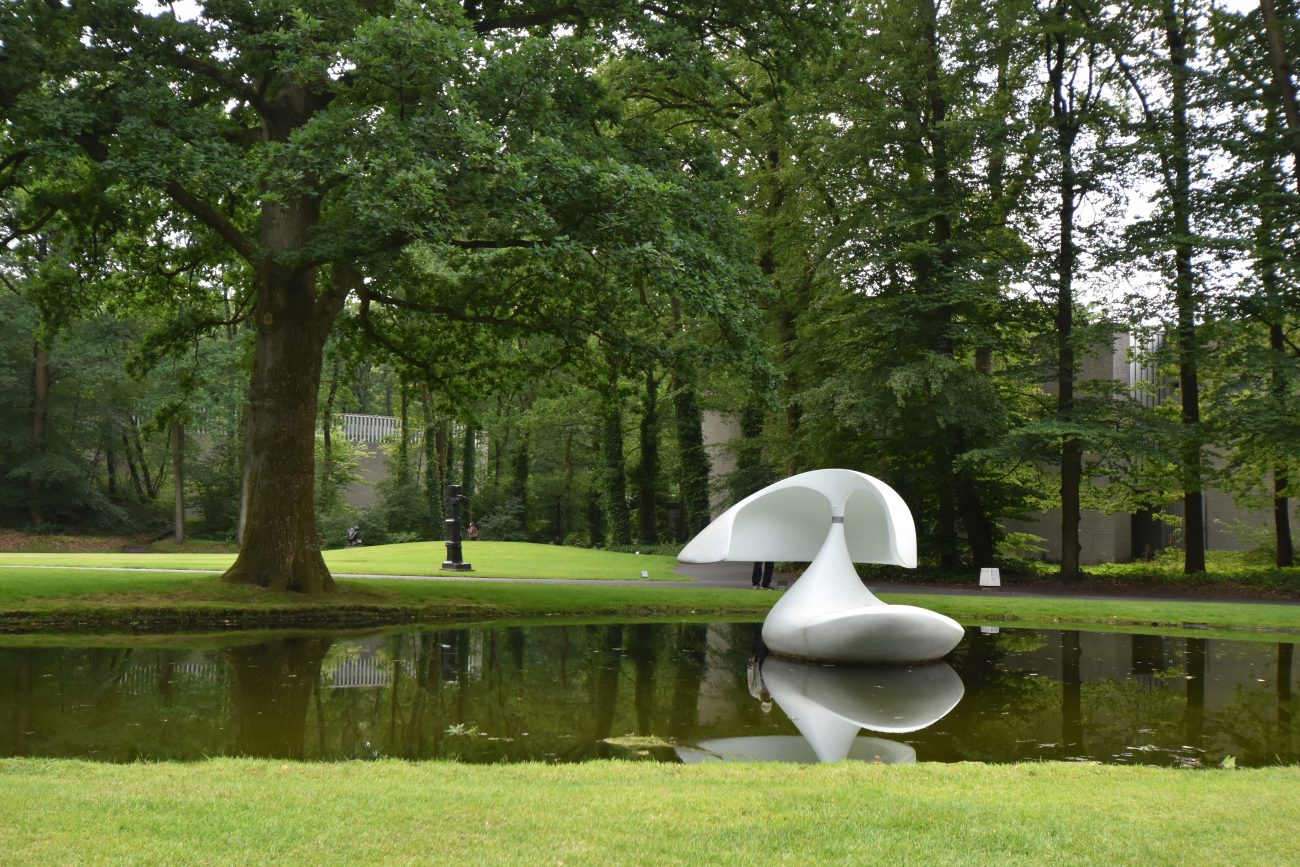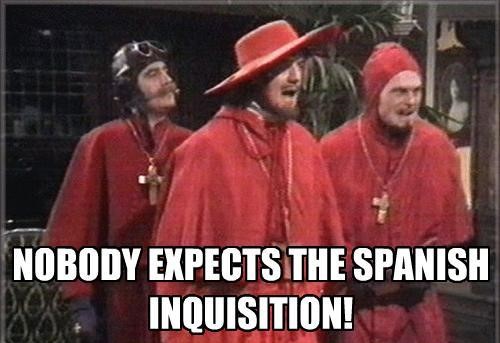Blanding down a message to be comforting to all potential readers, isn’t my thing. Posts here are meant to be tease from slumber, to opine for discussion and to stimulate to think. This means the language has a distinct style, being direct, and apologetic nor understated, also elliptical and/or long-winding, stopping short of using the correct ‘prolix’ since not many readers may understand the QED in this – not for simpleton readers.
Oh and pics are almost all my own – almost all unedited if you didn’t notice… – and selected to be at least slightly relevant to the post concerned. Maybe.
And, let’s not forget my seriousness: “Let silence be your general rule; say only what is necessary and in few words” (one of my heros, Epictetus). Yes, isn’t it ironic, don’t you think?
Have fun!
Blog
Niet weer baar heid maar Veerkracht
Oh. Zie ik zomaar dat in Europees verband ‘resilience’ kennelijk behoort te worden vertaald met het verzonnen woord ‘weer-baar-heid’.
Een woord dat uitgaat van (agressief-? nee juist niet)passiviteit;
‘weer’, als in: afweer, een beetje bang terugdeinzend in freeze [of zelfs flight is reeds omdraaiende om hard weg te rennen], niets van doen hebbende met fight;
‘baarheid’ — dubbelop. Zoiets als compliancy in plaats van -ce. Hypercorrectie.
-baar betekent dat een ander er iets mee kan, als in houdbaar, ‘kan worden ge-‘. Een auto is rembaar als er remmen op zitten. Weer-baar, als verdedig-baar?
-heid betekent dat het een zekere mate betreft; uiterst kwalitatief en subjectief. De mate van ‘rembaar’, de kwaliteit van de remmen (bij bedoelde en onbedoelde gebruikssnelheden van de auto), zwak- tot on-bepaald.
Weerbaarheid is dus equivalent met (af)weergeschiktheid, geschikt tot het door een ander laten afweren van iets. Rembaarheid van een auto – iemand kan (de auto) remmen, in onbepaalde mate; eigenschap van de auto, bij geen gebruik aanwezig doch ballast. Iets of iemand anders remt.
Dat lijkt me niet de bedoeling: Weerbaar is iedereen, als de Overheid het weren op het juiste moment maar oppakt, wij zijn daar klaar voor! Zelf hoeven we dus niks te kunnen.
Of wordt bedoeld: Geschikt om te worden (af)geweerd? Wie weert dan wat, en waarom? Is een aanvaller weerbaar omdat die zwakheden heeft die afweer mogelijk maken?
Weerbaarheid, laten we dat dus gewoon de zwaktes en OPSEC-foutjes van de aanvaller mee aanduiden.
Bovendien blijkt er uit de term niks van tolereerbare schade laat staan herstel tot de oude situatie of beter, integendeel; zwijgen over schadeherstel is tell-tale. Hooguit ‘remmende terugtrekking’ dus; we blijven in het lelijke, het negatieve hangen.
Wat waarschijnlijk was bedoeld, maar om onduidelijke reden bij de vertaler onbekend was, is de al eeuwen bekende term ‘veerkracht’; oorspronkelijk bedoeld voor veren — voor (in)drukkrachtdemping en -ongedaanmaking, niet voor overzetten hoewel etymologisch waarschijnlijk (dunnetjes) nog hangende aan een draadje ‘vogelpen’?
Waarom die ‘oude’ (quod non) term niet gebruikt, als gewoon Nederlands? Bang voor iets sterks, of gebrekkige taalbeheersing? Veer — als er iets indrukt, geven we stoïcijns-vrolijk mee, steeds steviger tegengas gevend tegen de ongewenste invloed;
kracht — met positieve connotaties, die uit onszelf komt. En zeker tot volledig herstel bedoeld is te komen, zelfs ‘antifragility‘ toelaat.
Dan hebben velen meer er ten minste zin in …
Edited to add; zoals deze:

Gelukkig hebben we (nog) Single Sign-On …
Of hebben we dat in stilte overboord gegooid…? Of stiekum laten gooien ..? Of eigenlijk nooit volledig geïmplementeerd maar alleen voor een paar applicaties – in de tijd voor we over ‘apps’ spraken.
Met het fantastische MFA, meestal niet M maar hooguit 2, beginnen we weer opnieuw. Dat is op zichzelf ook alweer kwetsbaar gebleken, in wat meer bijzondere gevallen maar toch. Het wachten is nu op verplichte 3FA, tot ook dat weer zal sneuvelen.
Ja deze blogpost is een ‘run it up the flagpole and see who salutes’.
Of we gaan eerste eens serieus de nieuwste (allang niet meer) aanbevelingen van NIST opvolgen, en dan met name consequent (sic) het password-vervangregime aanzienlijk versimpelen.
Of we gaan massaal over op password managers. Oh nee; die zijn óók al kwetsbaar gebleken (unfortunate collateral damage gerepareerd met “Sorry”..? Jawel.) en als we er met z’n allen op gaan leunen, zal het allemaal nog meer in elkaar donderen. #wetopbehoudvanellende ..?
Of we gaan massaal over op Zeer-o Trust of zo? @Meneer, ditch je vraagteken in deze(n) en maak er een interrobang van. Jawel, een ‽ enne, we moesten nog steeds eens vaart zetten achter #ditchcyber!
En achter serieus RBAC laat staan ABAC ook. Of hoe verhoudt dat laatste zich tot SSO … #askingforafriend
Of we doen een serieuze reset, à la deze. Hoe? Tsja ik hoef niet alle oplossingen te hebben. Wie beweert dat men pas kritiek mag hebben als er een beter alternatief wordt gepresenteerd, kan niet denken. Een probleem signaleren is het startpunt van échte ontdekkingen; er direct een oplossing bij hebben bedacht, levert alleen maar uiterst poreuze tunnelvisie’tjes.
Wat ik wél weet:
- We moeten wát. Wat moeten we?
- Ingewikkelder maken voor Joe Enduser is een garantie op falen. Simpeler maken van de veiligste manier van werken, is het enige dat iets van een lange-termijnhoudbaarheid kan opleveren.
- Terug naar SSO! Technisch op te lossen; hoeft de gebruiker niks aan te doen. Is er niet wat te bereiken met ‘personal’ AI, on the end node en met een single sign-on te gebruiken om persoonlijk doorlopend getrainde (sic) nul-vertrouwen te kunnen toepassen, aldus beschermende tegen verlies en diefstal (want patroonongepast gebruik blokkerende tenzij na additionele controle+logging+…). Dat is helemaal niet vergezocht, dat doen creditcardmaatschappijen al een aantal decennia (server-side). En in wezen doet jan en alleman er al aan, als we kijken naar OV-chip’kaart’ inclusief bankpassen op de mobiel. Ik (voel uw) wantrouw(en in) dat…!! Maar toch; we kunnen SSO bereiken mét 0T. De complexiteit in de technology is voor de back office. Alwaar Engineers dingen tenminste kunnen Oplossen (pleo), gaan we vanuit.
Nou ja, we moeten in ieder geval een andere compartimentalisering, verdeling. Niet, zoals nu, voor iedere scheet (sic) opnieuw driemaal pincodes en wachtwoorden opgeven, maar naar risico+-gewogen toepassing.
System(at)isch onmogelijk; de ‘AI’ versie
en ongewenst bovendien
Trouwe lezers herinneren zich wellicht nog het stukje over niet-zelf-rijdende autoauto’s. En de diverse posts over het toenemende gebrek aan ervaring-opdoenend vermogen en vooral -gelegenheid om telkens weer verdergaande extreme besturingssituaties van ‘AI’ over te kunnen nemen als dat moet.
Daar blijken dus allerhande wiki’s et al. al over te gaan. Als hier maar vooral ook hier en hier. Wat buitengewoon actueel is (wie denkt zometeen na jarenlang automaat-rijden nog ‘zonder nadenken’ én soepeltjes handmatig te kunnen schakelen? ‘overconfidence bias’ bij uitstek..!), bijvoorbeeld in:
- Vliegverkeer. Een duidelijke (casus)beschrijving is te vinden in Messy;
- Auto- e.a.-verkeer, als bovenstaande;
- Accountancy, als eerder beschreven (en daarna herhaaldelijk);
- Voorbeelden te over. Soms op het kantje de wereld reddend door niet te luisteren.
U kunt daar vast wel uw eigen ideeën aan toevoegen.
Even een plaatje tussendoor:

Get real; the datacentertankers with your LLM are fixed to their anchors; you just want to sail Free! (Off the port o’ Porto).
Dus… De logische-onmogelijkheidsaanhangers, of liever de nog-lang-niet-praktisch-toepasbaar-aanhangers van/tegen “AI” of zelfs maar het-betere-ML, formeren steeds meer anecdotische én system(at)ische voorbeelden, redeneringen en logica waarom we best vooruit zouden kunnen komen mét ML maar niet door ML alleen. Interessant. Maar jammer dat er zó veel energie aanmoet tegen het ontzenuwen van al te blije verhaaltjes, en er zó veel energie wordt verspild aan inherent (nog) onmogelijke mirages, luchtspiegelingen.
Dus … de vraag blijft: Hebben we van doen met de snelheid van (het) geluid, waarvan allang duidelijk was dat die wél kon worden doorbroken en alleen praktische tekorten dat lang onmogelijk hielden, of hebben we te maken met een lichtsnelheid die aantoonbaar onmogelijk kan worden doorbroken zonder in onoplosbare paradoxen te belanden; zoiets als tijdreizen met de grootvaderparadox? Of waar ertussenin (ook onmogelijk) zitten we qua ‘AI’-theoretische-mogelijkebestaanbaarheid..?
En dat nog afgezien van de wenselijkheid van al dat AI-gedoe.
Denk aan deze: De eeuwige wens van de mens, is dat ‘iemanden’ of machines of wat dan ook, gevaarlijk, vervelend of saai werk overnemen om ons de ruimte te laten om creatief te leisure‘n. Wat er gebeurt in Amazon-warehouses is dat er airco komt tegen 40°-hitte niet omdat de mensen al omvielen (letterlijk gebeurd; is pech) maar pas zodra de robots er last van hebben.
Maar/omdat er ‘helaas’ nog mensen nodig zijn voor de kennelijk toch wel complexe taken … Wat makkelijk is voor de mens, is moeilijk voor de automatisering en andersom.
Hier passen een hoop metaforen over terugtrekking (ik bedoel: ‘tactische hergroepering in achterwaartse richting’) door de mens langs de meest kwetsbare vluchtroutes – zonder een samenwerking op te zoeken op de meest waardevolle grond.
Die grond is overigens denk ik te vinden in een naadloze verbinding, dooradering, van geautomatiseerde systemen op basis van ‘gewone’ algoritmen – die blijken wel al héél veel te kunnen, mits slim doordacht –, ML, maar ook Expert Systems as of old – denk Lisp en Prolog! – en bijvoorbeeld genetische algoritmes (doorlopend zich ontwikkelend, wellicht zelfs, à la ML-doorlopend-trainend ..‽) — en dat al te mixen met gewone mensen die hun unieke kracht gebruiken naar eigen inzicht en luimen.
Zelfs als die luimen liggen in, om maar wat te noemen, de accountancy. Was niet ooit het idee van de auditor een Notabele te willen zijn; gezag op persoonlijke naam te hebben – als een auditor zijn werk had gedaan en voor zichzelf voldoende had gezien om het auditrestrisico te kunnen aanvaarden, dan was het Goed (genoeg). Getrouw Beeld, bovendien. Iets meer dan Bijstand verdienend vanwege het afbreukrisico, niet meer want dat betaamt een Notabele niet – stel je voor dat een auditor geassocieerd zou raken aan geldwolverij; de schande!
Contrasteer dat eens met de Standaard 4400(N) en zie de totale onderschikking van de Mens aan de kapitalistische Machine. Lees wat de Klassieken dachten over revoluties als volstrekt natuurlijke processen, nu weer hard nodig bij een bezitsongelijkheid die wereldwijd nog nooit is vertoond (really).
À la Bruce, samenvatting hier: De wereld is als een spinnenweb: de kleine vliegjes worden gevangen, de grote vliegen er dwars doorheen.
Waarbij de wereld bovendien dermate en-én is, dat de werkelijkheid niet in regeltjes te vangen is. Prescriptief noch descriptief. Vaste regels zijn derhalve een contradictio. Flex moet. Wie daardoor in paniek raakt – nee, we zijn wel degelijk ietsje verder ontwikkeld dan de holenmens (on the surface, en alleen daar), maar er is een fors contingent mensen (waaronder collega’s) dat nog steeds liever in de grot blijft want buiten is het koud en enge dieren en zo ook al verhongeren we – laten we dan ook degenen die wél naar buiten willen om te exploreren en voedsel (ook voor de geest) te vinden, vooral proberen tegen te houden zodat we allemaal ten onder gaan. Zie de hedendaagse maatschappij/economie.
Nou ja, zo ziet u maar: Zelfs een serieus verhaal over ‘AI’-onbestaanbaarheid weet ik wel om te turnen tot een bezwaar tegen microdenkende vinkauditortjes…
Amnesia: Metaverse
… Just wondered: Who’s still bullish about Teh Metaverse ..‽
And it was only a short while ago that e-ve-ry-one needed to move to the M, or would be derelict, out, over, forgotten. Whatever one’s personhood, according to the Usual Suspects in sich things, one Must (past tense – that is the same word yes why ..?) join in with the craze. Any company not moving to the ‘verse completely, would be derelict within five years, remember? But, since this bubble was from some good long time i.e., three years ago: what was it?
Just a ‘virtual world’ of sorts. Proclaimed to be the virtual world of the future, disconnected of the real one – apperently, in some weirdos’ minds – whereas those in the know both looked forward to profiting Big Time from it and knew this wasn’t the first or only of such systems by far. Castranova already discussed a lot of them, Second Life in particular. Mind you; 2006 and probably before, extensively, already – but too little purely-accidental ‘riches’ were thrown towards it, to have made it into the mainstream.
And aren’t all too many games (Minecraft, anyone ..?) not virtual worlds, including in-game purchasing et al. etc. et cetera? What more was the intention of the Metaverse? Nothing but an extension of such ideas, be it with unlimited (this is the Internet Age of mankind; ‘infinity is an abstract concept so don’t talk about natural limitations, very strict limitations, of ever coming near anything big let alone infinite’ of the stupid kind) ‘earnings’ potential. Which was, is, shorthand for fleecing you of everything you own and then, well, your avatar upgrade fits the squeezed-out lemon mould best #discard
For those that claim to be data driven (quod non; don’t get me started):

Demonstrating that some Mark Z affiliates and the ubiquitous McK are still pouring money into it. Which could also have been used to fight hunger, poverty and deprivation of tens, maybe hundreds of thousands of humans in a permanent and sustainable way.
Don’t they ever know when to stop? Isn’t it getting sad..? And where does the money go? W.C. Fields was always right. Still is.
OTOH, we(?)’re coaxed into developments that extend the idea(s). Think games, as said, that go further and further into the direction of virtual worlds.
[Intermission: Does anyone know how those actually operate? Do all taking part, know what a shard is? Do all know how the rules are insusceptibly changed to fit game (tactics) developments; who is in control over the rules? Is that humans or AI? What ‘purpose’ have the AI bots been instructed to pursue, in-game and over-game (overarching-control tightening)? If one doesn’t know the answers, or guesses them, correctly, one (the masses) is bound to be taken for a ride… end of intermission]
But what do players learn? They learn what ‘actions’ the games seem to award, mostly less-than-fully legal. Now that is quite some ethics reference for … life outside the games. The more game time, the less life time learning how to function in an actual society, get food (legally) through hard work and little pay – add food, shelter et al. that no game teaches how to ‘procure’ or manage, let alone supply to current game standards.
Though I suspect that in cross-over functionality one could easily order a pizza in-game, to be delivered physically. But is that Life?
Which brings us very close to the above forgotten world of Meta – but which will be extremely more binding down the ‘players’; with less and less options to escape, logically since more and more monay must be squeezed out of said sad subjects.
Oh well, me and my dystopian ethical angles again. Let’s discuss.
E.g., to what degree some European institutions try to pull all of real society into their system by abolishing cash so that only in-system ‘money’ remains. The very existence, let alone ownership, controlled by the system operators. Now that is something unseen in the history of mankind…
New study subject: Ou est-il, ce Fraternité ..?
Both Liberté and Egalité are focused on individualisation, whereas Fraternité is focused on the opposite. Liberté leads to ourobouros capitalism, where markets are destroyed by the 0,1%ers that corner every market around the globe until there’s only a tiny elite and billions of slaves left. Egalité, in its pure form, is about the same – communisme where no-one has anything at all which is a state where free speech or free will is dangerous to the ultimate flatness of society.
Both are hierarchical systems to the extreme. Both require global coordination – hence introducing organisational choices that can only be effectuated, or lead, by, ultimately, indivi-duals. As Man is a biological being, it strives for its individual survival first, its own offspring second, and then … nothing as that has a potential, however remote, of hindering one’s own first and second. Leading to the extremes; balanced beings will be overtaken by non-balanced ones.
But as Man is a social animal, and will be, this will frustrate attempts at (further) extension of (some individual(s?)) liberty and/or equality by extremist hierarchy: LE are limited by Fraternity, or overthrown. Limited, timely or overdue, by masses that haven’t lost their individuality sufficiently yet to control them or come from the outside showing Another Way. Or destroyed, by revolution which throughout human history has been the corrective absolutely normal and expected means of restoring balance in whatever factor is overthrown.
LEF is a triangle, and humanity decides where the angles are. Humanity decides whether it, consciously but more probably unconsciously, ‘grows’ the surface area, and in which direction.
There’s so much more to it. E.g., the basics on wiki – note the Dutch page is much, much shorter as we know so much less of thinking in principles, but we do have the reference to Van Reybroek’s piece – when you follow the links there, you’ll find that the wiki page is ominously partial in its interpretation of Reybroeck’s piece… through the latter by the way points to the, more important, Matthieu Ricard.
And note the variants of the three-word combo through time, befitting something which may have rubbed the wrong shoulders throughout history.
Of course we’ll study the sources behind the wiki pages and much more, to arrive at something operational, possibly, against ‘either ourbouros capitalism or pure communism’ that is in the LE-polarisation discussion. For now, I let this one rest though, or fester? in the back of my mind. I’ll return on this one!
Bam. Ideas arrive faster than I can jot them down, even with my writing and typing skills [is that the same as being able to drive stick-shift and automatic just as easily and ‘professionally’..?]
E.g., tying in with the above, a discussion on privacy (quite and individualism thing, as per ability to live freely and have no limits put on choice) – where anonymity play a role in being able to escape control … re Signal, ‘social’ media, elite-capture of the Fourth Estate, and means to evade. If there is a way out of Total Control (if not when, excepting true destructive revolutions), how would they go about in this sphere?
Or basic Freedoms, like freedom of speech, and their limitations in not harming others with the same as that is a limitation of their freedom, to not be subjected to your (relative) abuse. Are the Freedoms individual ‘possessions’, or where are they property of the society in which you live, that developed them for you to use? What Contract Social? On which side would Fraternité sit?
And how do people still believe their vote counts..? Infinitsimal, at best. I vote for a party that never gets into any coalition. How does my vote count? How does ‘democracy’ work when a (li-te-ral) handful of people determine who’s eligible / can stand in the first place ..? And that my splinter party even has a program… that my preferences match with for at most 40% – other parties less to much less – but starting one’s own party has been made impossible, from scratch. Münchhausen was a fabulist; no-one can truly defy actual gravity but the ignorant (Dunning-Kruger). ‘Yes but if no-one would vote, democracy would be lost’– well if people do vote, there’s no difference is there? No surprise that the Dutch Regentenopstanden (where proles ramsacked gents’ houses and threw the inventory ito the canals) are so suppressed (even the English wiki page lists only ‘normal’, sanctioned revolts), instead of being cherished as signs of any will to freedom from defunct hierarchy.
Marie-Courtin Présence

I bought this one for the 1/3 Pinot Blanc (of course!). High expectations, exceeded.
 First off, the yellow-golden almost amber colour would promise some sweet almost creamy elements. But with a delightfully tingle from a fresh mousse, and a light bitter-tartness in the nose, the picture turns around completely. There’s Mirabelle ..!
First off, the yellow-golden almost amber colour would promise some sweet almost creamy elements. But with a delightfully tingle from a fresh mousse, and a light bitter-tartness in the nose, the picture turns around completely. There’s Mirabelle ..!
The palate is perfect; not too much mousse so the real ‘wine’ taste is clear, and the Mirabelle keeps on coming. The mouth feel overall is well-balanced, and includes a soft minty/dill side with the lemon (plus some bittersweet orange even), moving into the grapefruit area and then the mirabelle’s back again. The very long finish has the mint/dill combo again, and an inkling of sugar. But with zero dosage, that’ll be the Chard and almost certainly the Pinot Blanc waving goodbye. Throughout, there’s a slight undertow of pickled cornichon (Amsterdam style; what else?)
All in all, it’s a wonderful demo of what Pinot Blanc can bring; lifting the Chard from its average whilst pulling itself up into high performance. Merging the best of both into Something Else of a great wine. This being a zero dosage, zero sulphur added, zero intervention wine, it also proves that ‘natural’ wines need not be f(l)unky. But on the contrary, one would hardly be able to tell.
The Présence is course material in so many ways. Am I happy? Well, not with six other dwarfs but yes, very much so.
To be continued…
Bucks Everywhere
You know I’m Old (which I am definitely not, when considering mental age… ipse dixit) when I still discuss ‘Bucks and their logo. That I find everywhere, but can’t seem to get any response at all for from them. Recently, spotted it here, big time. Again, this raises the question where it’s from, what it means beyond the trivial. We’re dealing with high-altitude locations, not just sea ports or so…
Nobody
Gruet’s Cuvée Arbane …

The Gruet Cuvée Arbane … 100% Arbane yes.
Something Else entirely!
With  a fresh and quite light, lemon-white colour through which a very fine and persistent mousse. Then, on the nose, one gets a first whiff of floral notes; jasmine, elderberry, rose – followed by zingy but ripe lemon. When allowed to mellow in the glass (or a day in the bottle), the lemon slowly brings along some grapefruit, pineapple and (dry white) melon. All within measure, refined, nowhere too in-your-face’y.
a fresh and quite light, lemon-white colour through which a very fine and persistent mousse. Then, on the nose, one gets a first whiff of floral notes; jasmine, elderberry, rose – followed by zingy but ripe lemon. When allowed to mellow in the glass (or a day in the bottle), the lemon slowly brings along some grapefruit, pineapple and (dry white) melon. All within measure, refined, nowhere too in-your-face’y.
The mouthfeel is brilliant with the mousse playing its role to keep the very well balanced aspects all quite light. The dosage is hardly noticeable – from the taste of it, one would estimate 2g. max, and notes of soft white peach, light albedo, with a very long finish on the thyme/mint/dill spectrum with the albedo bitters lingering on.
Would work miraculously with e.g., flounder with serious sauce and herbs, swordfish with almond crusting, maybe tuna or mackerel, or white meat.
Saw a score somewhere of 91/100 (ah, Hachette), but that’s too low. Buxeuil doesn’t have any Arbane (production) of its own, but with this Gruet wine, it has a flagship. Arbane being at only 0,018% (yes, percent) of Champagne’s acreage, this cuvée highlights the ‘need’ (want!) for quite an extension of that.
Nieuw! Champagne – Update 2024

Wat dacht u? Natúúrlijk spotten we en passant de trends in de champagne voor u, als we er toch zijn (waren)…
Updates Januari 2024…:
- Houtrijping (sowieso, afgezien van onderstaande solera of acacia),
- Flessen met een afgeronde bodem – niet zielloos maar gewoon – waarschijnlijk voor gewichtsbesparing door dunner glas te kunnen gebruiken; “goed voor het milieu” en goedkoper…
- Een trend naar het gebruik van natuurkurk voor de opleg, zodat een wat oxidatievere stijl ontstaat waar enige mode in zit. Reken er dus op dat smaken van cacao, koffie en tabak ook in uw volgende vintage kunnen zitten. Dat is interessant! Dan is er zoveel meer te proeven… Afgezien van ook de tegengestelde tendens, in de eenvoudiger cuvées, naar juist wat reductiever, lichter werk, overigens. Hetgeen wij aanbevelen mits, juist ook, mooi, gerijpt zodat de diversiteit in het subtiele wel aanwezig blijft.
- En, interessant voor een apart stukje eens onder de verzamelpagina, rosé de saignée; de uniciteit van de meng-rosées die nergens ter wereld mogen maar in de Champagne lekker wel, dus loslatend. Soms zelfs naast elkaar van één huis. #nazoekenwaaromdezetrend
- Héél veel Ratafia en Côteaux Champenois. Zal wel door opbrengst- en productiebeperkingen in combi met afzetbewegingen zijn.
Naast de Juli 2023-gesignaleerde nieuwigheden: - Solera. Het oversteken van nieuwe wijn voor de aanvulling van oudere jaargangen, of andersom. Om meer smaakdiepte te krijgen. Ja ook in de Champagne dus in opkomst; de platte NV-moet-binnen-twee-jaar-op-en-je-proeft-wat-je-proeft-en-basta-straightforward-smaak wordt dus aangevuld met betere wijnen;
- Rijping op acaciahout. Elders nog steeds veel, vaak veel, te lang, op Frans (Limousin van tussen de limousines – als hier niet hier), Amerikaans (vanillebom door grote open porieën), Sloveens (slow-veens dus subtieler, wegens dichtere porieën) of Hongaars hout; hier dus op Acacia-hout. Kan een gimmick zijn maar zag er toch wel her en der wat. Subtiele smaak! Enne, het is eigenlijk een terugkeer naar wat vroeger vaker werd gedaan. Now you know;
- Aandacht voor het land, traditie van de familie (>3 generaties) is wel het minimum waar je mee moet aankomen als producent. Anders ben je een commerciële newbie. Alsof er onder de oudgedienden niet geslepen wordt gemarket, dus;
- Speciale cuvées. Waar een cuvée elders wordt gemaakt van het fris’te deel van de vin de goutte, gaat het in de Champagne vooral om verschillende wijnen van een huis. Voorheen een stuk of drie, nu ook bij de kleinere/kleinste huizen zeker zo’n vijf à zes oplopend tot 15 … Dús kleinere oplagen, als minste effect. Maar vooral: variatie in smaak! Ja dat is proefbaar, de verschillende blend-verhoudingen en rijpingstijden (post-eerste vergisting, post-tirage), inclusief in-mix van vins de réserve.
NB hier doen ook de core 24 Grandes Marques en de 53 andere Union des Maisons de Champagne-labels aan mee, al of niet door oude of in-het-verleden-te-weinig-aandacht-gekregen cuvées naar voren te halen. In the lead: Roederer met hun 242/243/nu244 [update: +245 is er bijna] jaargangen die telkens nét iets anders geblend zijn en anders smaken. De 242 is wel onze favo maar dus niet meer te krijgen… De andere merken doen hierin mee, volgend maar duidelijk wel. En dus naast de Prestige Cuvées;
- Dat de Forgotten Four nóg minder aandacht hebben en dat juist nóg meer verdienen, las u al hier. Maar da’s dus nog geen trend. Jammer.
Zoals gezegd:
 [Parasolletje op, boekje erbij; een frisse duik en een flesje van het lokale brouwsel bij de hand: Het leven is zwaar in Viviers-sur-Artaut…?]
[Parasolletje op, boekje erbij; een frisse duik en een flesje van het lokale brouwsel bij de hand: Het leven is zwaar in Viviers-sur-Artaut…?]







